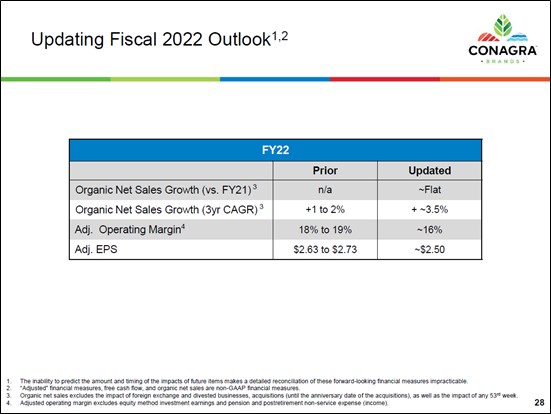The China Factor: Why Luxury Car Brands Are Facing Headwinds

Table of Contents
Economic Slowdown and Shifting Consumer Sentiment
The robust growth of the Chinese economy, which fueled the luxury car boom for years, has begun to decelerate. This economic slowdown significantly impacts the China luxury car market, creating a ripple effect throughout the industry.
Reduced Economic Growth
Slower GDP growth directly translates to reduced consumer spending, particularly on discretionary items like luxury vehicles.
- Decreased consumer confidence: Uncertainty about the future leads to cautious spending habits.
- Tightened credit conditions: Accessing financing for high-value purchases like luxury cars becomes more difficult.
- Impact on disposable income: Lower economic growth reduces overall income, leaving less money for non-essential purchases.
The impact is evident in sales figures. For instance, in 2022, luxury car sales growth in China fell significantly compared to previous years, according to data from the China Association of Automobile Manufacturers (CAAM). This decline correlates with a drop in consumer confidence indices, reflecting a broader economic slowdown. Understanding these economic indicators is crucial for predicting future trends in the China luxury car market.
Preference for Domestic Brands
The rise of domestic Chinese luxury car brands is another significant factor disrupting the market. These brands, once perceived as inferior, are rapidly gaining ground on their international competitors.
- Increased quality and prestige of domestic brands: Significant investments in R&D have led to improved quality, design, and technology.
- Government support for domestic automakers: Policies favoring domestic brands provide a competitive advantage.
- Patriotic consumerism: A growing sense of national pride drives consumers towards supporting local brands.
Brands like Hongqi, Lynk & Co, and Nio are gaining significant market share, directly impacting the sales of established international players. Their success demonstrates the growing appeal and competitiveness of domestic luxury vehicles in the China luxury car market.
Geopolitical Uncertainty and Regulatory Changes
Geopolitical tensions and regulatory changes add further complexity to the China luxury car market.
US-China Relations
Strained US-China relations significantly impact the luxury car industry.
- Tariffs on imported vehicles: Trade disputes have resulted in tariffs, increasing the cost of imported luxury cars.
- Potential for trade sanctions: The threat of further sanctions creates uncertainty and discourages investment.
- Impact on brand image: Geopolitical tensions can negatively affect the perception of international brands among Chinese consumers.
Specific trade disputes and their resulting tariffs have directly affected the pricing and competitiveness of imported luxury vehicles in China. Navigating these geopolitical complexities is crucial for maintaining profitability in this volatile market.
Stringent Emission Regulations
China is aggressively pushing for stricter environmental regulations, presenting significant challenges for luxury car manufacturers.
- Costs associated with meeting stricter emissions standards: Upgrading vehicles to comply with new regulations requires substantial investment.
- Technological advancements required: Manufacturers need to adopt new technologies, such as electrification, to meet these standards.
- Impact on pricing strategies: The higher costs associated with compliance can affect pricing and market competitiveness.
China's increasingly stringent emission standards, including those targeting carbon emissions and particulate matter, force luxury brands to accelerate their transition towards electric vehicles and invest heavily in related technologies. Failure to adapt to these regulations will severely impact their ability to operate successfully within the China luxury car market.
Evolving Consumer Preferences and Technological Disruption
The China luxury car market is undergoing a rapid transformation driven by evolving consumer preferences and technological disruption.
Demand for Electric Vehicles
The demand for electric vehicles (EVs) in China is exploding, creating both opportunities and challenges for luxury car brands.
- Investment required in EV technology and infrastructure: Significant investment is needed to develop and manufacture competitive EVs and supporting infrastructure.
- Competition from Chinese EV startups: Domestic EV startups are rapidly innovating and gaining market share.
- Consumer preference for EV features: Chinese consumers increasingly prioritize features such as advanced autonomous driving capabilities and connected car technologies.
The sheer pace of EV adoption in China necessitates significant investments in research and development for established luxury brands to compete effectively. Ignoring this trend will lead to a decline in market share and profitability.
Digitalization and Online Sales
The rise of e-commerce is profoundly impacting the luxury car buying experience in China.
- Importance of online presence: A robust online presence is crucial for reaching and engaging potential customers.
- Digital marketing investment: Investing in effective digital marketing strategies is essential for attracting and converting online leads.
- Adapting to changing consumer behavior: Understanding and adapting to the evolving preferences of digitally savvy consumers is key.
Luxury brands need to invest heavily in building engaging online experiences and creating effective digital marketing campaigns to reach the growing number of online car buyers in China.
Conclusion
The China luxury car market presents a complex and dynamic landscape. Economic slowdown, geopolitical uncertainty, and evolving consumer preferences are creating significant headwinds for established international brands. Successfully navigating this challenging environment requires a deep understanding of the "China factor," strategic adaptation, and significant investment in areas like EV technology and digital marketing. Luxury car brands must prioritize a nuanced approach to the China luxury car market to maintain their competitiveness and secure future growth. Ignoring these trends will leave brands vulnerable in this crucial market. Understanding the intricacies of the China luxury car market is critical for long-term success.

Featured Posts
-
 Reaksi Israel Atas Rencana Pengakuan Palestina Oleh Presiden Macron
May 18, 2025
Reaksi Israel Atas Rencana Pengakuan Palestina Oleh Presiden Macron
May 18, 2025 -
 Dodgers Gonsolin Dominates In First 2023 Start Fuels Five Game Win Streak
May 18, 2025
Dodgers Gonsolin Dominates In First 2023 Start Fuels Five Game Win Streak
May 18, 2025 -
 Shohei Ohtani Rises To The Challenge A 2 Run Home Run In Japan
May 18, 2025
Shohei Ohtani Rises To The Challenge A 2 Run Home Run In Japan
May 18, 2025 -
 I Tzenifer Aniston Kai O Pentro Paskal Bradini Eksodos Kai Oi Antidraseis Ton Thaymaston
May 18, 2025
I Tzenifer Aniston Kai O Pentro Paskal Bradini Eksodos Kai Oi Antidraseis Ton Thaymaston
May 18, 2025 -
 Selena Gomez Vs Taylor Swift Blake Lively Justin Baldoni And A Public Dispute
May 18, 2025
Selena Gomez Vs Taylor Swift Blake Lively Justin Baldoni And A Public Dispute
May 18, 2025
